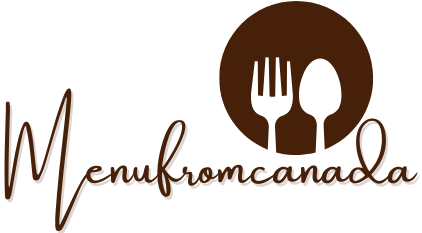Privacy Policy
In today’s digital world, protecting personal information is more important than ever. Whether you’re checking out the latest food options or browsing restaurant reviews, a Privacy Policy plays a key role in your online experience.
A privacy policy explains how a website collects, uses, stores, and protects your data. Websites treat a privacy policy not just as a legal document—but as a promise to users about how they will handle personal information.
Let’s dive deeper into why privacy policies are essential, especially for restaurant menu websites that serve customers across Canada.
What Is a Privacy Policy?
A privacy policy is a legal statement. It outlines how a website or platform manages the data it collects from users. This includes:
- Name
- Email address
- Phone number
- IP address
- Location data
- Device information
Websites that offer menu listings, restaurant details, or location-based services often gather such data to improve user experience.
Why Restaurant Menu Platforms Need Privacy Policies
Restaurant menu websites often provide localized results. To do this, they may need access to your location. They might also request your email address for newsletter updates or feedback forms.
Here’s why having a privacy policy is crucial for such platforms:
- Legal Compliance: It helps comply with data protection laws such as Canada’s Personal Information Protection and Electronic Documents Act (PIPEDA).
- Transparency: It builds trust by telling users how their data is collected and used.
- Data Security: It shows commitment to keeping user data safe.
- User Rights: It informs users of their rights to access, correct, or delete their data.
What Information Is Collected?
Restaurant and food-related websites usually collect the following data:
| Data Type | Purpose |
|---|---|
| Personal Info | Contact forms, newsletter signups |
| Location Data | Showing nearby restaurants or menus |
| Device Information | Optimizing website performance |
| Browsing Activity | Improving menu suggestions |
This information helps the platform offer personalized and accurate results.
How Is Data Collected?
Data collection can happen in several ways:
- Direct Input: When users fill out forms.
- Cookies: Small files stored in your browser to remember preferences.
- Analytics Tools: These track user behavior like clicks and time spent.
- IP Tracking: Identifies your approximate location.
Each method serves to enhance user experience and platform functionality.
How Is Data Used?
Most websites clearly explain how they use the data they collect in their privacy policies. Here’s how most restaurant menu websites use the information:
- To personalize menus based on location
- To send updates or newsletters
- To respond to user questions or concerns
- To improve website performance and layout
- To analyze user trends and behavior
By understanding these uses, users can make informed choices about sharing data.
Who Has Access to the Data?
Privacy policies also clarify who can access your data. In most cases:
- Website administrators have limited access for maintenance.
- Third-party services (like analytics or email tools) may process data.
- Law enforcement may be granted access if legally required.
Most platforms do not sell user data to outside parties. However, they may share it with trusted partners for service improvement.
How Is Data Protected?
Security is a top concern. Privacy policies often explain the steps taken to protect data:
- SSL Encryption: Secures data during transfer.
- Firewall Protections: Prevents unauthorized access.
- Data Minimization: Only essential data is stored.
- User Account Controls: Enables users to manage their information.
These measures help reduce the risk of breaches and cyberattacks.
Your Rights as a User
In Canada, users have several privacy rights. A privacy policy will inform users about their ability to:
- Request access to their personal data.
- Correct inaccuracies in the data stored.
- Withdraw consent for data usage.
- Delete their information completely.
Restaurant menu platforms must respect these rights and provide a clear method for submitting requests.
Cookie Usage and Consent
Many websites use cookies to enhance performance. A privacy policy should clearly explain:
- What cookies are used.
- Why they are used (e.g., saving location or language preference).
- How users can opt-out or disable cookies in their browser settings.
Transparency in cookie use builds trust and ensures compliance with international privacy standards.
Third-Party Links and Services
Restaurant platforms often link to third-party services, like Google Maps or delivery providers. Privacy policies should notify users that:
- These third-party services have their own privacy policies.
- The platform is not responsible for how those services handle user data.
Website owners encourage users to read the privacy terms of any external links they visit.
How to Contact the Platform
Finally, a good privacy policy offers a clear way to contact the website’s team. This might include:
- An email address for privacy concerns
- A contact form
- A mailing address for formal requests
Being reachable assures users that their privacy matters.
Conclusion
Privacy policies are more than a legal formality—they are a vital part of the user experience. Platforms that offer restaurant menus, location services, and food recommendations handle personal data with care.
Understanding a privacy policy helps users feel more secure and in control. It also allows the platform to maintain transparency and trust with its audience.
Whether you’re a user or a site owner, always take the time to read or create a strong, clear, and fair privacy policy. It’s a small step that makes a big difference in protecting online privacy.
